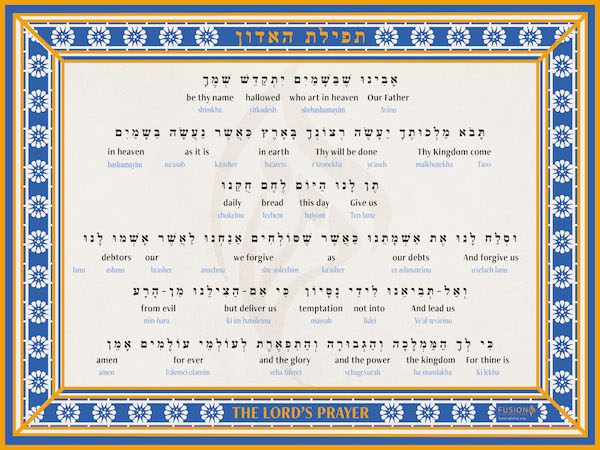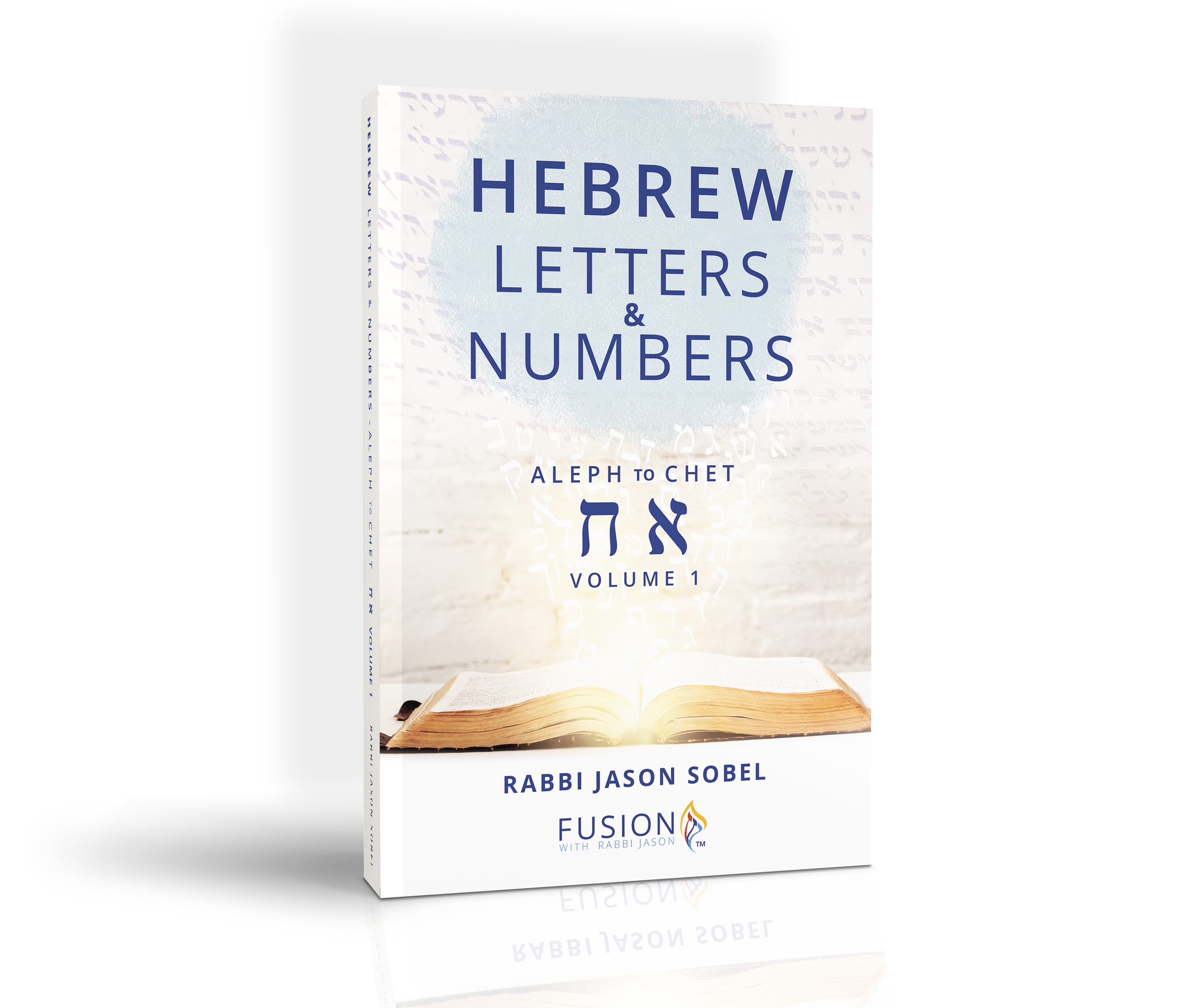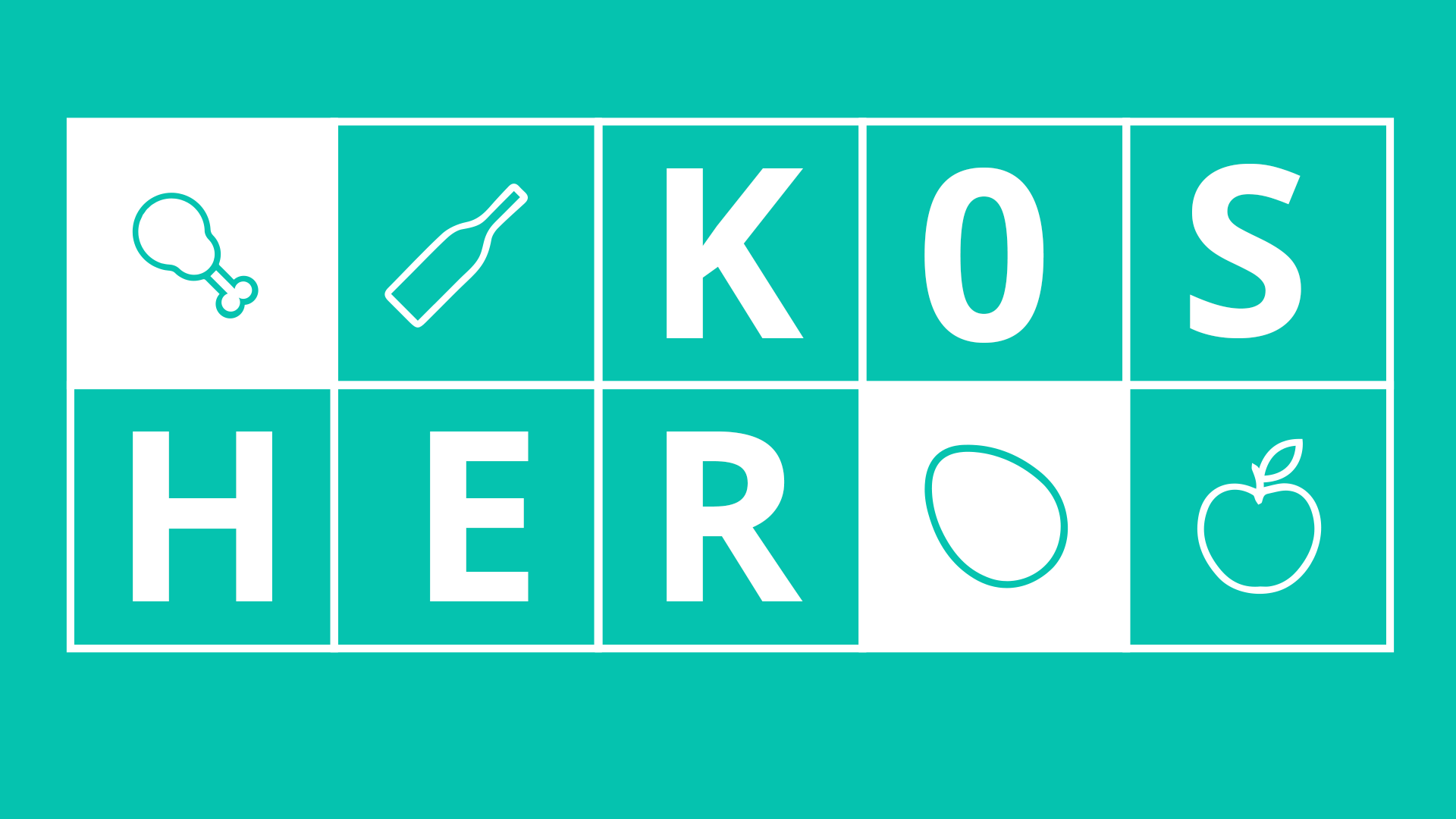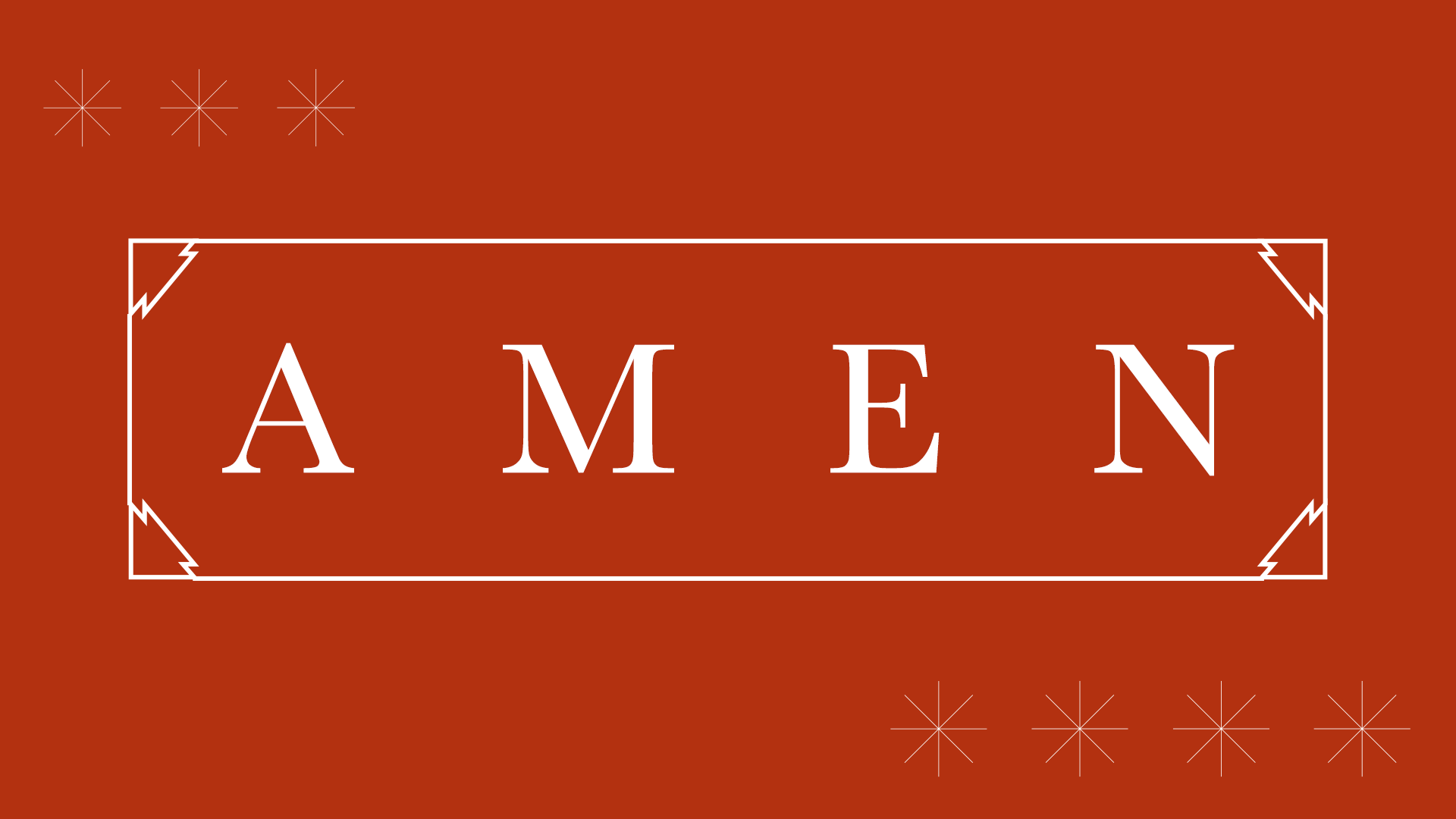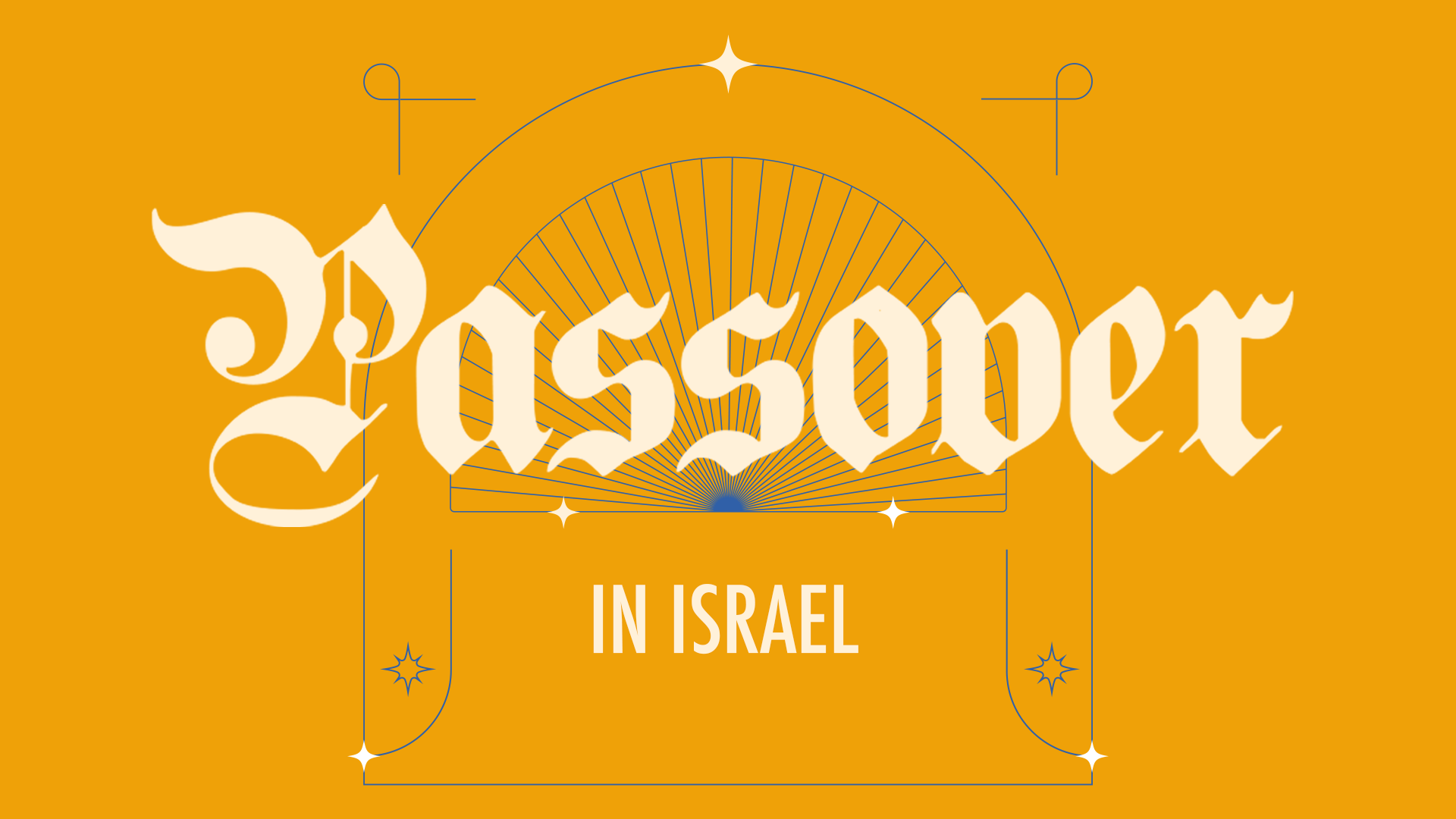Shemini Atzeret: Eighth Day Assembly
Shemini Atzeret: Eighth Day Assembly
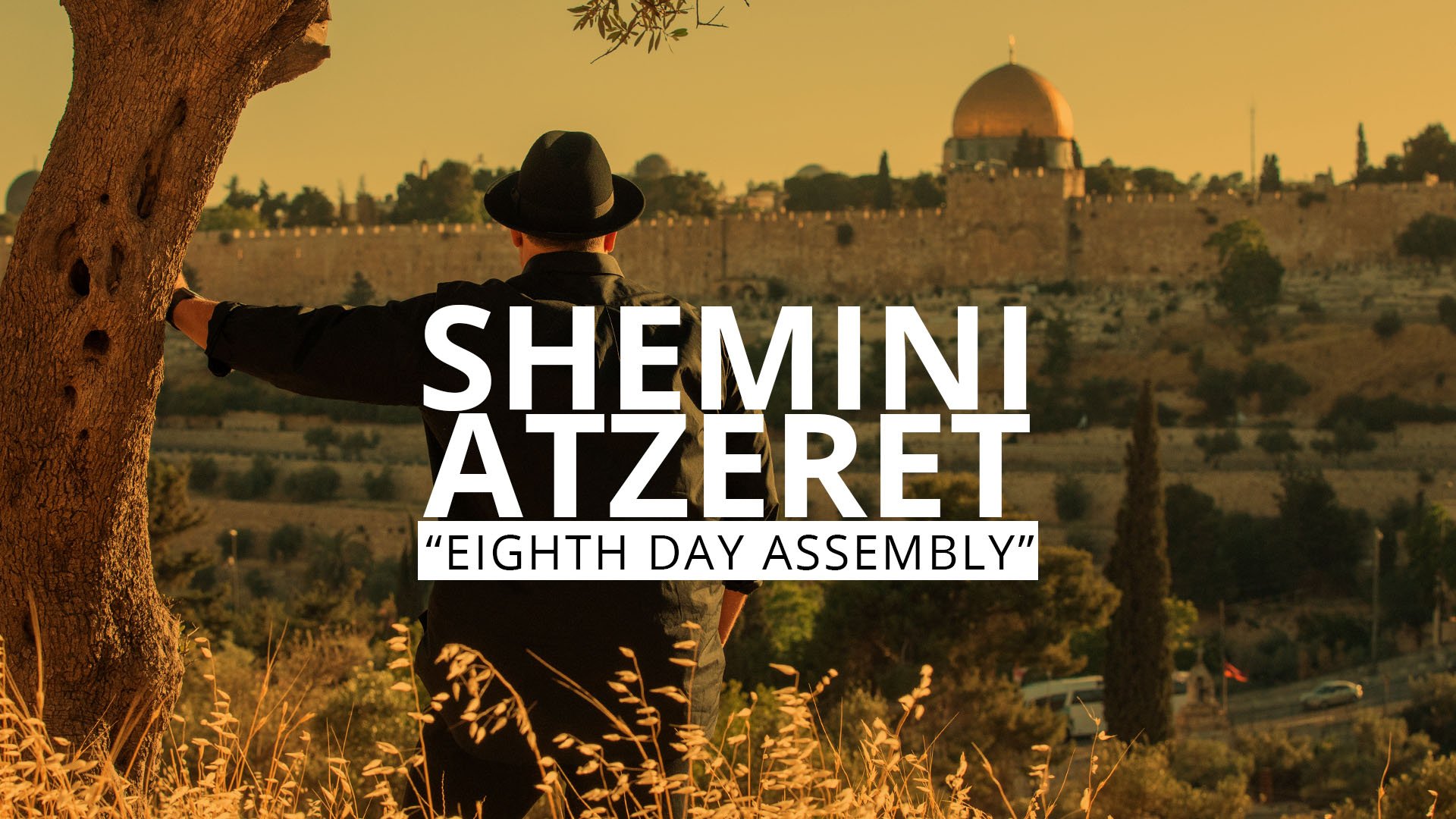

Shemini Atzeret [5783]: Due to its proximity on the calendar, people often think of Shemini Atzeret as the last day (or days outside of Israel) of Sukkot. That is not quite the case, however. In some ways, they share a connection, but they are separate holidays. According to Numbers 29:35, “On the eighth day there shall be for you an assembly. You are to do no regular work.” The holiday’s name literally means “Eighth Day Assembly.” Shemini Atzeret’s distinction is vital because its focus differs slightly from Sukkot’s.
Shemini Atzeret’s name literally means “Eighth Day Assembly.”
The medieval period commentator Rashi wrote,
This word “Assembly” is expounded in the Aggadah (Sukkah 55b): “For throughout the days of the festival they brought offerings symbolizing the seventy nations, and when they came to leave, God said to them, ‘Please make Me a small feast, so that I can have some pleasure from you.'”
Sukkot, in general, has two foci. First, the remembrance of tents we dwelt in during our sojourn in the wilderness. Second, the ultimate redemption of the world, when all humanity will dwell in the Tabernacle of God’s presence. It has a “macrocosmic” scale. Shemini Atzeret, by contrast, focuses on the individual and their experiences with God on this “extra” day.
The Focus is on the individual and their experiences with God on this “extra” day.
There is a Midrash that expounds on the significance of the eighth day even more:
Why were they kept back another day? Rav explained, “The matter can be compared to a king who celebrated a holiday. His servants came and honored him, the members of his household came and honored him. An important woman hinted to them, ‘While he is still involved with you, ask him to meet your needs.’ The Torah offers the same hint, ‘Ask Him to meet your needs,’ When they did not understand, she stopped them for an additional day, Shemini Atzeret.
The Jewish people practically express this engagement with God in the prayer for rain. Beginning at Shemini Atzeret (which follows the summer months), we pray, “Mashiv HaRuach U’Morid HaGeshem—He causes the winds to blow and the rains to fall.” In an agrarian society, especially one with definitive dry and rainy seasons, rain is of crucial importance. Whether feeding livestock or raising crops—all of it depends upon rainfall.
This modification of our prayer occurs in the second blessing of Amidah, known as Gevurot (Powers). This blessing repeatedly expresses God’s ultimate dominion:
“sustains life”
“resurrects the dead”
“supports those who fall”
“heals the sick”
“frees those in bondage”
“keeps his promises to those who sleep in the dust”
(and now) “sends rain”
All the above correlates to, “Your kingdom come, Your will be done on earth as it is in heaven” (Matthew 6:10 and Luke 11:2). The second prayer of the Amidah and this phrase of the Lord’s prayer both affirm God’s ultimate sovereignty in the world. God is providential in those areas of life over which we feel we have no control: life, death, sickness, and in this particular case, rainfall.
“Your kingdom come, Your will be done on earth as it is in heaven” (Matthew 6:10, Luke 11:2)
Within Judaism, God’s absolute sovereignty is an essential element of faith. Rashi dedicated considerable space to the subject in his first commentary on the Book of Genesis. Rabbi Shelomo Eliashiv expounded on this for the first thirty pages of his Shaarei Leshem Shebo V’Achlemah, a work on the essentials of faith and their practical application. There is a reason why the Jewish people repeat this affirmation three times daily in the Amidah—our perception does not always match reality. Often it may seem that the opposite is true (which is to say, God is not in control). Although this topic is more extensive than we currently have space for, the inalterable truth of God’s sovereignty is the main point. Nothing can prevent or effectively oppose His intervention in the lives of His people. Hence the Apostle’s words of encouragement,
“Do not be anxious about anything—but in everything, by prayer and petition with thanksgiving, let your requests be made known to God… My God will fulfill every need of yours according to the riches of His glory in Messiah Yeshua” (Philippians 4:6,19).
Now we come to an even more salient point. Not only can God intervene—He wants to intervene. “Ask, and it shall be given to you. Seek, and you shall find. Knock, and it shall be opened to you. For everyone who asks receives, and the one who seeks finds, and to the one who knocks it shall be opened. For what man among you, when his son asks him for bread, will give him a stone? Or when he asks for a fish, will give him a snake? If you then, being evil, know how to give good gifts to your children, how much more will your Father in heaven give good things to those who ask Him!” (Matthew 7:7-11)
Many of us struggle with this claim that God wants to give us good things and intervene in our situations on our behalf. For many, this resistance to God’s inherent benevolence toward us stems from the distorted images of God we’ve developed based on interactions with our imperfect parents. Yeshua understood this issue, which is why He consistently used the term “Father” in His teachings. Even with our sometimes-flawed parents, we expected to have our basic needs met. I often tell people, “I’ve never heard my kids ask if there is dinner, but daily they ask me what is for dinner.” The expectation that I will provide them with their basic needs is absolute.
Yeshua’s point is: if even imperfect and flawed parents know how to provide good things for their kids, how much more will our perfect Heavenly Father do so? Of course, He will! This truth should be a given in our lives; otherwise, we need to repent—change our minds about the nature of our God.
If even imperfect and flawed parents know how to provide good things for their kids, how much more will our perfect Heavenly Father do so?
Rabbi Eliashiv (in the work I mentioned earlier) has a compelling discourse explaining the essence of repentance as thinking differently. Ultimately, every deed stems from a thought. Each thought is a seed, the potentiality, and the subsequent action is the actualization of that potential. Thus, to truly repent (i.e., change our behavior), we need to think differently—to have different thoughts. The issue here is summed up in the lyrics of an old popular hymn, “O what peace we often forfeit, O what needless pain we bear, All because we do not carry everything to God in prayer.” Regarding the topic at hand—repentance in keeping with the theme of the fall holidays—this new way of thinking must be to take our concerns to God in prayer with a grateful expectation of an answer.
If even imperfect and flawed parents know how to provide good things for their kids, how much more will our perfect Heavenly Father do so?
What a magnificent and gracious blessing that we have an entire holiday dedicated to this way of living! The spring holidays and Sukkot are dedicated to communal storytelling and the reenactment of the deliverance from Egypt. Rosh Hashana and Yom Kippur focus us on repentance. However, the central theme of Shemini Atzeret is (re-)connecting with God to provide for our needs. We must not let this opportunity to grow in God’s love and grace pass us by!
Shemini Atzeret is (re-)connecting with God to provide for our needs. We must not let this opportunity to grow in God’s love and grace pass us by!
See Amos 9:11, Isaish 4:5, and Revelation 21:3
Yalkut Shimoni Parashat Pinhas, 782.
Chapter 4: Potentiality, Actuality, Deed and the Issues surrounding them in the man’s service.
Joseph M. Scriven, What a Friend We Have in Jesus (Public Domain, 1855).
FREE WEEKLY TORAH PORTIONS:
"I’m a Christian Theology student from London. I find Rabbi Jason’s explanations give my reading so much extra depth in Truth. Thank you!!!!"
What is Fusion with Rabbi Jason?
It is in looking back at what God has done that we can see forward to His future plans for us. “For I know the plans I have for you,’ declares the Lord, plans to prosper you and not to harm you, plans to give you hope and a future” Jer 29:11.
At Fusion Global with Rabbi Jason Sobel, we want to add definition to your faith as we restore the lost connection to our ancient roots and rediscover our forgotten inheritance.

